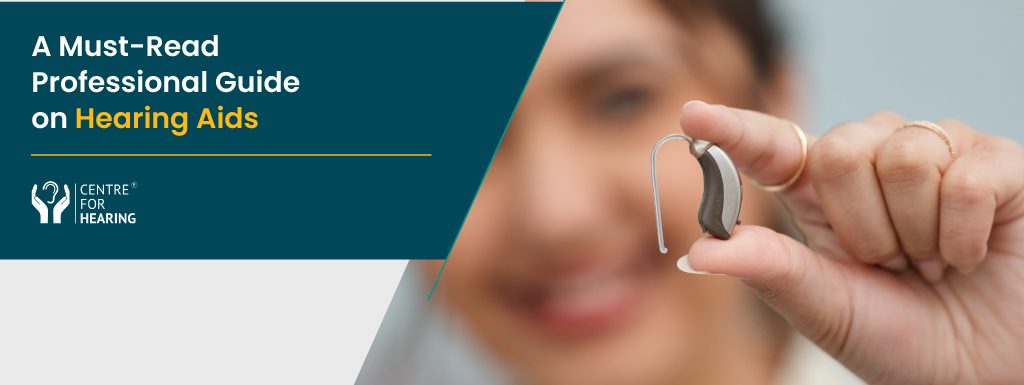Navigating the world of hearing aids can be both empowering and overwhelming. In this must-read professional hearing aids guide, we illuminate the path forward, ensuring you make informed decisions tailored to your unique needs.
In this hearing aids guide, let’s hear from the leading authority on hearing aids in India – Mr TS Anand is widely considered the father of the hearing aid industry owing to his deep understanding of audiology, electronics engineering background,45 years of experience in the field of manufacturing and dispensing of hearing aids, and his immense contribution to the industry. In this guide, he offers invaluable perspectives on hearing healthcare and achieving better hearing.
Let’s also unravel the nuances of hearing aid effectiveness with this guide and delve into the essential considerations before making this life-enhancing investment.
Why is it important to understand hearing loss?
The first step in maintaining optimal hearing health is to understand hearing loss. Mr Anand emphasises the various causes of hearing loss, such as ageing, loud noise exposure, and certain medical problems.
Recognising these issues early allows individuals to take proactive actions and seek timely help, emphasising the importance of regular hearing assessments.
How effective are hearing aids in addressing hearing difficulties?
Hearing aids have proven to be highly effective in addressing a range of hearing difficulties, offering a transformative impact on the lives of individuals with hearing impairment. Mr TS Anand, with his extensive experience, sheds light on the effectiveness of hearing aids and the positive outcomes they bring to those facing hearing challenges.
- Hearing aids work by amplifying sounds and making them more distinctly audible for individuals with hearing loss.
- They are specifically designed to address different degrees and types of hearing difficulties, providing customised solutions for users.
- The impact of hearing aids extends beyond mere amplification, contributing significantly to improved communication, enhanced social interactions, and overall well-being.
What are the key considerations before purchasing hearing aids?

Purchasing the appropriate hearing aid is an indispensable decision depending on the severity and kind of hearing problem, lifestyle, and affordability. Mr Anand recommends consulting with an audiologist for a professional assessment. This ensures a personalised approach, effectively aligning the chosen hearing aid with individual needs.
Here are some important considerations suggested by Mr Anand in this hearing aids guide:
1. Type and Degree of Hearing Loss:
Understanding the type and degree of hearing loss is the first step. A comprehensive audiometry test conducted by a qualified professional is essential for accurate diagnosis. To know and understand more about this, you can check out this detailed guide here.
2. Lifestyle and Activities:
Consider your daily routine and activities. If you lead an active lifestyle, you might require a different type of hearing aids compared to someone with a more sedentary routine.
3. Style and Comfort:
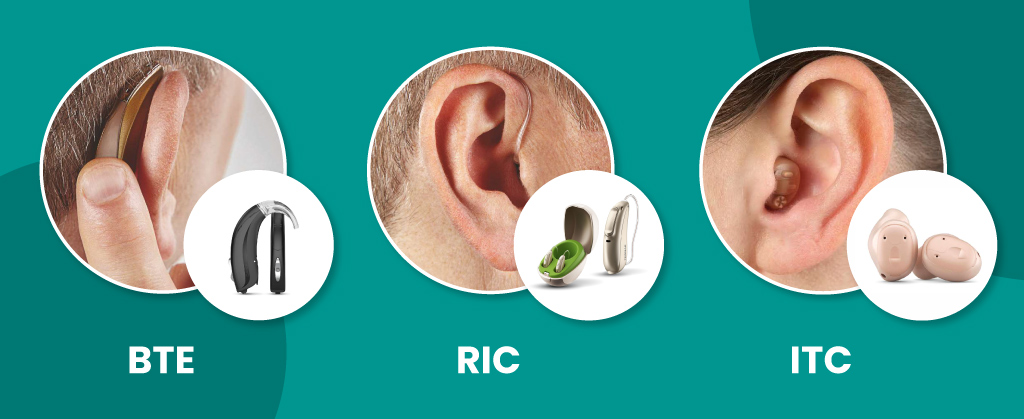
Hearing aids come in various styles, such as behind-the-ear (BTE), Receiver-in-Canal (RIC), and In-the-canal (ITC). Choosing a style that addresses your hearing needs and is comfortable for extended use is crucial. Watch this video to know more about the different types of hearing aids available today.
4. Technological Features:
Modern hearing aids offer advanced features like noise reduction, Bluetooth connectivity, and rechargeable batteries. Consider these features based on your preferences and requirements.
5. Consultation with a Professional:
Seek guidance from a qualified audiologist or hearing care professional. You need to go to a MASLP or BASLP-qualified expert. These expert professionals can assess your hearing needs and recommend the most suitable hearing aid.
6. Budget:
While considering your budget, it’s important to remember that hearing aids are a long-term investment in your well-being. Avoid compromising on quality for a lower price. Check the hearing aids guide on prices to make informed decisions.
7. Credibility of the Hearing Aids Clinic:
Prioritise credibility when choosing a hearing aid clinic. Consider their experience, reliability, and positive reviews. Opt for establishments with multiple branches for accessibility. Trustworthy clinics offer not only quality products but also exceptional after-sales service. Make an informed decision for optimal hearing aid solutions and reliable support.
How does the fitting process of hearing aids work?
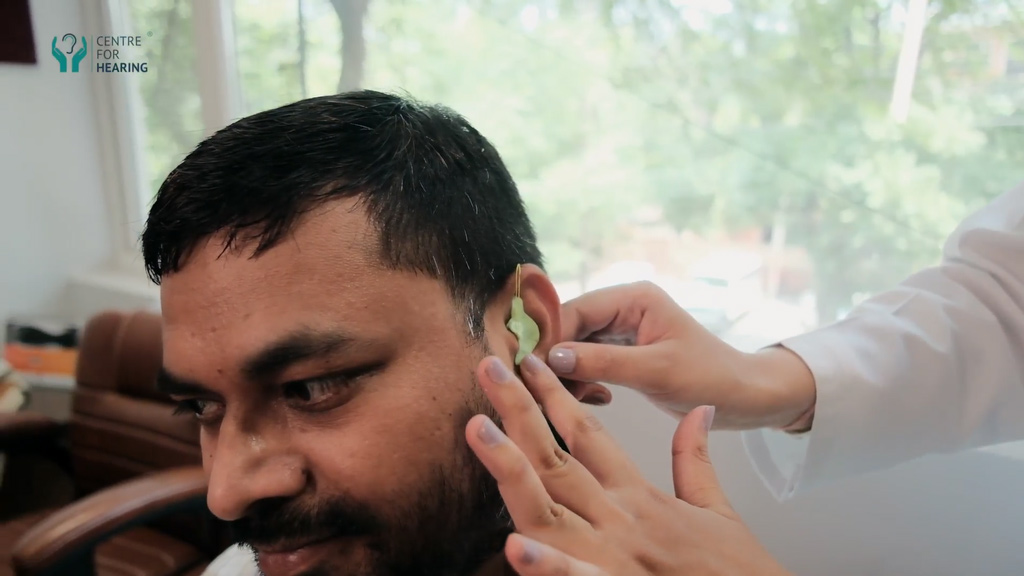
The fitting process involves adjusting the hearing aid to ensure a comfortable and optimal fit. An accurate fit is essential for the proper functioning of the device.
Mr Anand emphasises the importance of professional assistance during this process, as it guarantees that the hearing aid is tailored to individual requirements.
What maintenance and care do hearing aids require?
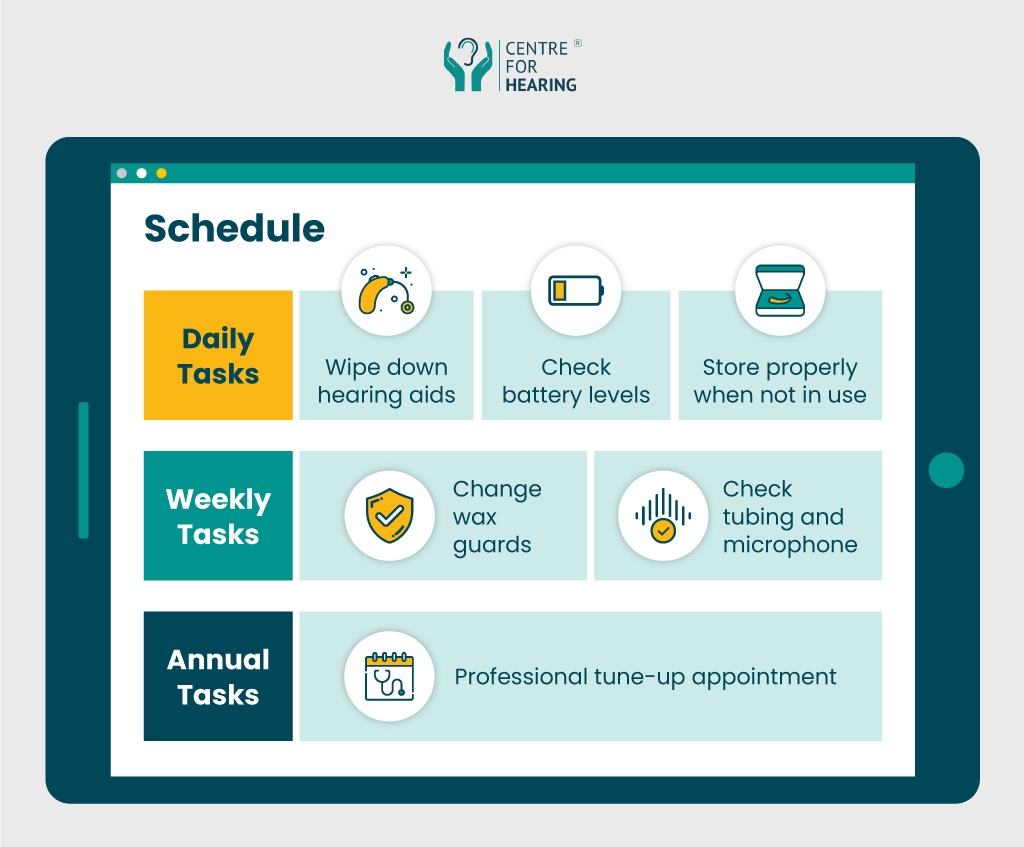
Hearing aids require regular maintenance to ensure longevity and optimal performance. Daily cleaning routines, changing batteries or charging devices, and periodic professional check-ups are essential.
Mr Anand advises users to adhere to these routines to prevent common issues and maintain the effectiveness of their hearing aids. Check our hearing aids guide that provides some tips to follow for the care and maintenance of hearing aids.
What are some common challenges faced by hearing aid users?
Challenges faced by hearing aid users may include adjusting to new sounds or the habituation necessary to get used to new hearing aids. Mr Anand acknowledges these challenges and recommends patience in getting familiar with hearing aids. Often patients suffer from ‘auditory deprivation’ which means that they haven’t heard heard sounds in a long time. It takes the brain some time to again familiarise itself and recognise those sounds.
Most of the time, new users are the ones facing difficulties while using their new hearing aids. Read this guide to overcome the challenge of new hearing aids.
Consulting with professionals and participating in counselling sessions can significantly contribute to a successful adaptation to hearing aids. You can also go through these FAQs and get your answers.
How have technological advancements impacted hearing aids?
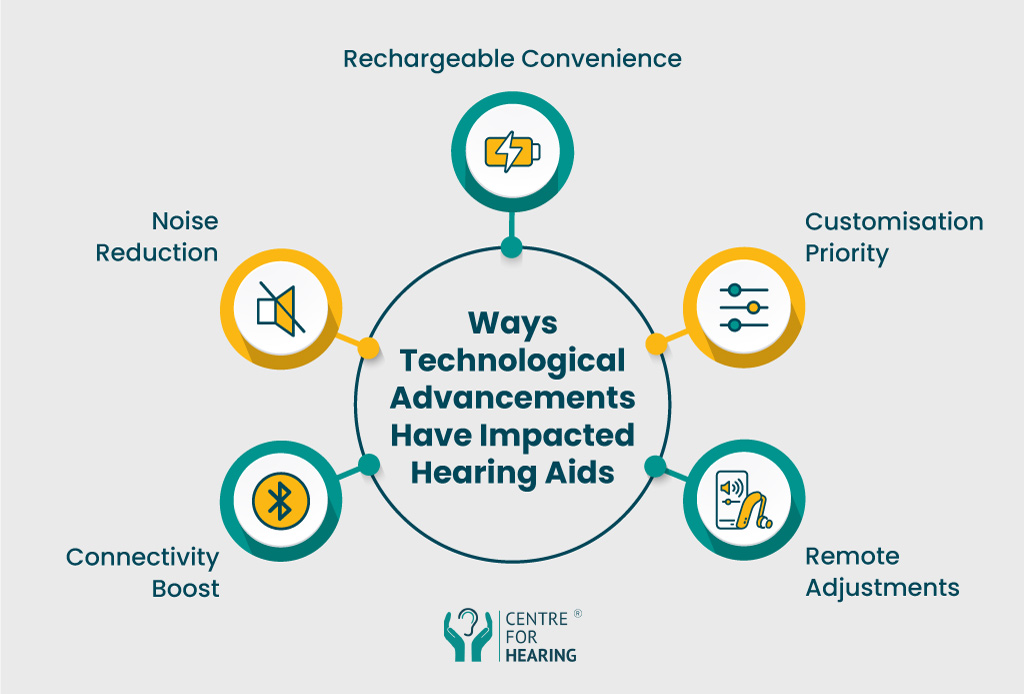
Hearing aid technology has entered a new era, combining innovation and accessibility for an ever-improving auditory experience.
In 1996, Mr TS Anand introduced digital hearing aids to India, marking a pivotal shift from analogue to digital technology.
Today, major brands like Widex, Signia, Phonak, Resound, Starkey, and Oticon leverage artificial intelligence for a personalised hearing experience.
Following are some technological advancements adopted by hearing aid manufacturers:
- Effortless Connectivity: Bluetooth integration connects hearing aids seamlessly to smartphones, TVs, and more, enhancing the user experience in our digital age.
- Noise Reduction: Advanced tech distinguishes speech from background noise, ensuring clarity in challenging auditory environments.
- Rechargeable Convenience: Rechargeable hearing aids eliminate frequent battery changes, providing a sustainable and hassle-free solution.
- Customisation Priority: Audiologists can tailor settings based on individual preferences, lifestyle, and specific hearing loss characteristics.
- Remote Adjustments: Remote adjustments and telehealth services enhance accessibility, reducing the need for in-person visits.
Also, the future promises greater AI integration, enhanced connectivity, and continuous refinements for a seamless and adaptive auditory experience.
How does the Centre for Hearing® stay at the forefront of hearing aid technology?
Centre for Hearing® stands out with 40+ years of experience, 50+ nationwide professionals, and over two lakh satisfied customers. We lead in hearing aid technology through collaborations with top brands like Widex, Signia, Resound, Starkey, and Oticon.
We offer tailored solutions, free telephonic consultations, and state-of-the-art clinics for precise evaluations. Our RCI-registered audiologists prioritise prevention, protection, and rehabilitation, ensuring quality care at every step. We have centres located in Delhi, Gurgaon, Mumbai, Chandigarh Tricity Area, and Punjab.
Choose us for a comprehensive hearing care journey, from awareness to personalised solutions and ongoing support.
Know About Mr TS Anand
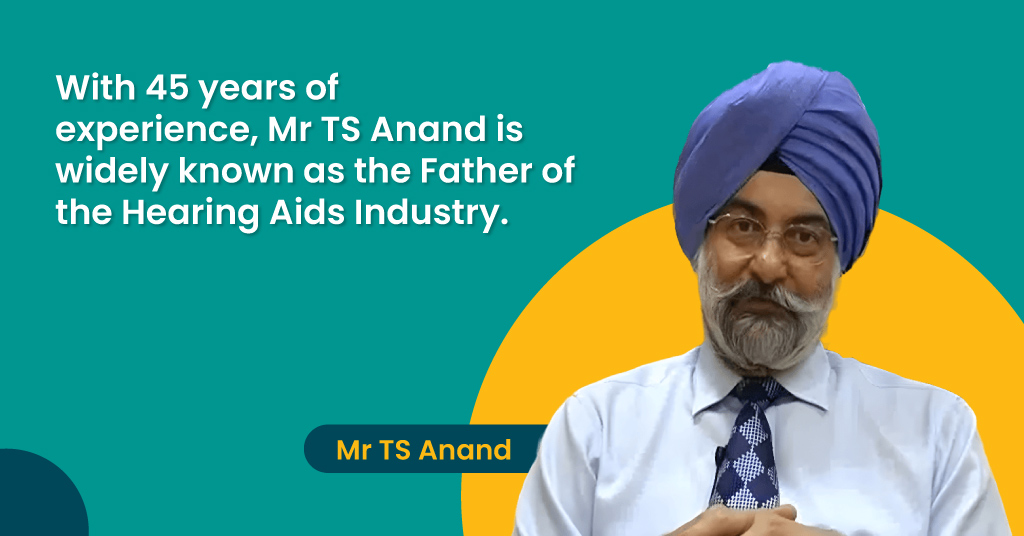
Mr TS Anand’s 45+ years of journey in the realm of hearing healthcare has been pioneering. Having been in practice for over four decades, he has seen how hearing aid technology advanced. This foresight brought digital hearing aids into existence in India and thus changed the sector on the whole. His commitment to improving the lives of those with hearing difficulties is evident in the philosophy of Centre for Hearing®.
Mr TS Anand was part-owner and Managing Director of Widex in India – the company to introduce digital hearing aids in the world and into India. Under his guidance, the field of hearing aid dispensing expanded rapidly across the country and personally hand-held several audiology centres to setup centres focused on professional hearing aid dispensing.
Mr TS Anand, with his extensive experience, is available for consultation in various cities. Individuals in Delhi, Gurgaon, Mumbai, Chandigarh Tricity Area, and Punjab (specifically Ludhiana, Patiala, and Jalandhar) can benefit from his expertise in hearing health.
Prior appointments can be scheduled to receive personalised advice and guidance.
Make the Right Choice With this Hearing Aids Guide
In conclusion, this professional hearing aids guide serves as a valuable resource for anyone navigating the realm of hearing health. One has to be very meticulous when picking a hearing aid since this can affect someone’s quality of life in many ways.
Mr TS Anand’s expertise and Centre for Hearing®’s commitment to quality make them a reliable source for guidance in this journey. Remember, addressing hearing difficulties is a significant step towards an improved quality of life.
Contact the Centre for Hearing® and book your consultation today!
Locate a Hearing Aids Centre Near You:
